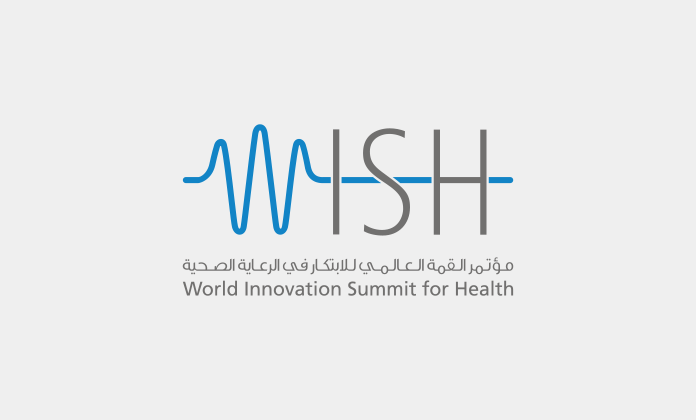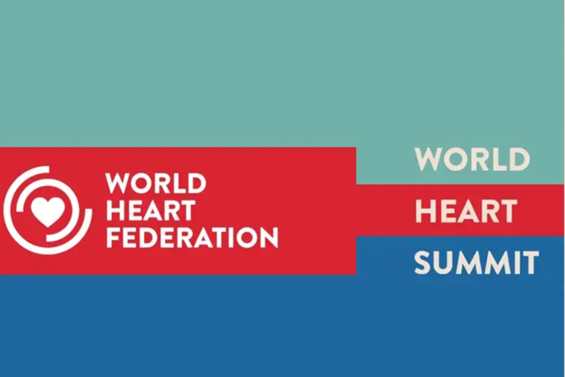Obesity is a global public health pandemic

DOHA, QATAR: Health leaders must look beyond their own health systems and develop partnerships with other sectors such as education, labor, agriculture, and finance in order to tackle the issue of obesity and Non Communicable Diseases, a panel of experts said today.
In an obesity report published at the summit today, experts, examined obesity related health problems in eight countries, as well as the economic and social burdens it creates. The report also observed that obesity is a non-communicable disease but has reached epidemic proportions globally and has led to a sharp increase in related conditions such as heart disease, diabetes and cancer.
The Forum highlighted recent innovations which could be adapted to meet the needs of different countries and help them develop affordable, effective strategies to prevent and manage obesity. It also emphasized that health ministries around the world must do more to champion the cause of measures which prevent the development of obesity in the first place, including a frank examination of the forces at play in their food systems.
Professor Shiriki Kumanyika of the International Obesity Task Force, University of Pennsylvania and Obesity Forum Chair said, “Public recognition of obesity as an important and non-communicable health crisis is not a debatable issue anymore. Besides the financial healthcare costs related to obesity and its resulting illnesses, there will be other draining costs on economies. Globally we need to do more to build awareness in our schools and worksites.”
Dr Louis Aronne said: “What starts as something behavioral in the environment turns in to something physical. We have got to get much more serious and aggressive at a very early stage if we are going to make any progress.”
Obesity is one of eight areas being discussed at the Summit taking place in Doha, Qatar on 10 and 11 December, where world leading experts will join an influential cast of heads of state, government ministers, academics, clinicians, policy makers and business leaders to discuss innovative solutions to some of the most pressing global health challenges. As well as Obesity, there will be reports on Accountable Care, Big Data and Healthcare, End of Life Care, Mental Health, Antimicrobial Resistance, Patient Engagement and Road Traffic Injuries.
The Right Honourable Professor the Lord Darzi of Denham, Executive Chair of WISH and Director of the Institute of Global Health Innovation at Imperial College London added, “The solution to the obesity pandemic may well lie within the scope of countries’ individual health care systems. Policy makers are urged to forge meaningful partnerships with other sectors like education, agriculture, finance, among others to realign health care assets to address obesity.”
WISH opened today in Doha and is under the patronage of Her Highness Sheikha Moza bint Nasser, Chairperson of Qatar Foundation for Education, Science and Community Development.
ENDS
Notes to editors:
- Obesity Report Summary
This report recognizes the complexity of the obesity pandemic and relies on the “whole-population,” prevention-oriented policy framework set out in the Global Action Plan. This framework emphasizes policies and environmental changes to improve the ability of individuals to achieve or maintain health-promoting dietary and physical activity patterns.
Examples of case studies
Case studies of effective interventions that are discussed in the report include:
- The ‘Active Qatar’ campaign.
- Oman’s Health Vision 2050.
- Home Grown School Feeding Program, Brazil.
- The Mind, Exercise, Nutrition, Do it Program.
Recommendations for policy-makers
Three recommended actions for health ministers to address the challenge obesity presents are identified in the report.
1. Champion obesity as an issue, and become an ambassador for change in other sectors.
- Assess the baseline, and set locally appropriate targets for changes in diet and physical activity.
- Establish multi-stakeholder partnerships for action on obesity, using inter-sectoral approaches.
2. Find innovative and economically viable ways to address obesity promoting forces in the food environment, and learn from successes in similar countries.
- Review and revise governmental and institutional food guidelines.
- Set nutrition standards for government-funded meal programs.
- Establish public-procurement guidelines that support local farmers and incentivize production of fresh fruits and vegetables.
- Establish food-labeling standards, and use food-marketing regulations to protect children from advertising for unhealthy foods. Apply labeling standards to packaged foods, restaurant menus, and point-of-purchase marketing.
- Use fiscal and trade policy levers that support both healthy imports and healthy domestic food production.
3. Implement settings-based initiatives in at least one of three core societal institutions, and in other institutions in future years. The core institutions are:
- Healthcare
- Schools
- Worksites
- About Professor Shiriki Kumanyika
Professor Shiriki Kumanyika is at the University of Pennsylvania and a part of the International Obesity Task Force.
Shiriki Kumanyika, PhD, MPH has an interdisciplinary background and holds advanced degrees in social work, nutrition, and public health. She is a professor of epidemiology (Departments of Biostatistics and Epidemiology and Pediatrics (Nutrition)), senior scholar in the Center for Clinical Epidemiology and Biostatistics, and the associate dean for health promotion and disease prevention at the University of Pennsylvania Perelman School of Medicine. She is also Senior Advisor to Penn’s University-wide Center for Public Health Initiatives.
Dr Kumanyika has served as principal investigator or co-investigator on several randomized multi-center and single-center clinical trials related to diet, obesity, weight control, and cardiovascular disease risk. She is currently studying factors associated with success among African American participants in weight control programs and influences of food marketing environments on African American food purchasing behaviors. Dr Kumanyika has served on numerous advisory or expert panels related to nutrition and chronic disease research and policy, both nationally and internationally, and chairs the Institute of Medicine Committee on Prevention of Obesity in Children and Youth. She is founder and chair of the African American Collaborative Obesity Research Network (AACORN).
- About WISH
The inaugural World Innovation Summit for Health (WISH), due to be held in Doha, Qatar on 10-11 December 2013, will bring together heads of state, ministers, senior government officials, academics and thinkers, as well as the most influential business leaders, to stimulate implementation of practical, sustainable and innovative solutions to tackle global health challenges.
The purpose of WISH is to encourage collaboration and innovation in health policy, health systems and health care delivery, in order to close the gap between what we know and what we do in the fields of healthcare and medicine.
WISH is aligned with the mission and vision of Qatar Foundation and Qatar National Vision 2030, and serves to highlight Qatar’s growing role as an emerging center for healthcare innovation. As the nation stands at the forefront of healthcare reform, Qatar Foundation has embarked upon several promising research-health initiatives, including partnerships with Weill-Cornell Medical College, Biobank Qatar, Qatar Robotic Surgery Centre Qatar Cardiovascular Research Centre, Virgin Health Bank, and Sidra Medical and Research Center.
For more information on WISH, please visit: http://www.wish-qatar.org/
- Qatar Foundation – Unlocking Human Potential
Qatar Foundation for Education, Science and Community Development is a private, non-profit organisation that is supporting Qatar on its journey from carbon economy to knowledge economy by unlocking human potential for the benefit of not only Qatar, but the world. Founded in 1995 by His Highness Sheikh Hamad Bin Khalifa Al Thani, Amir of Qatar, QF is chaired by Her Highness Sheikha Moza bint Nasser.
QF carries out its mission through three strategic pillars: education, science and research, and community development. QF’s education pillar brings world-class universities to Qatar to help create an education sector in which young people can develop the attitudes and skills required for a knowledge economy. Meanwhile, its science and research pillar builds Qatar’s innovation and technology capacity by developing and commercialising solutions through key sciences. Finally, its community development pillar helps foster a progressive society while also enhancing cultural life, protecting Qatar’s heritage and addressing immediate social needs in the community.
For a complete list of QF’s initiatives and projects, visit http://www.qf.org.qa
For more information about Qatar Foundation please contact our press office at: pressoffice@qf.org.qa
More News

WISH Brings Global Leaders Together at Osaka Expo to Tackle Attacks on Health in Armed Conflict
Read More

